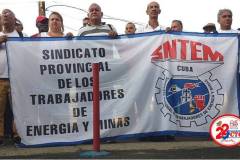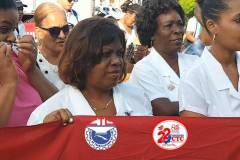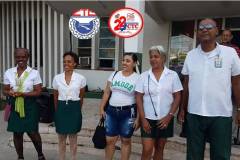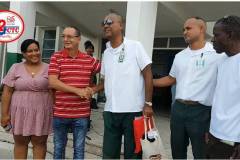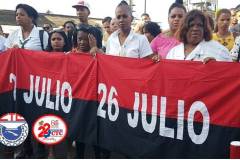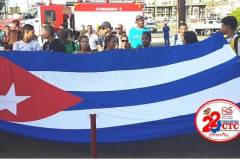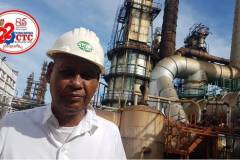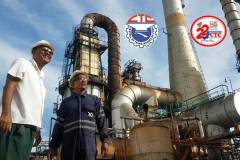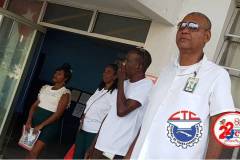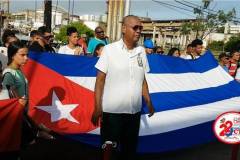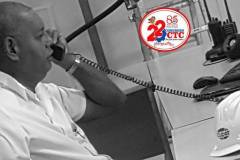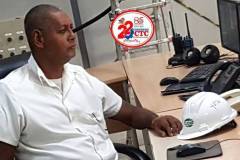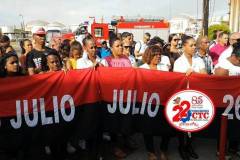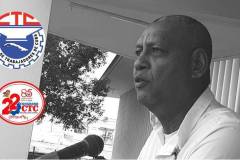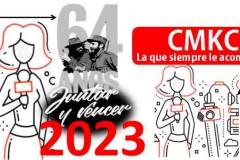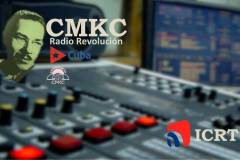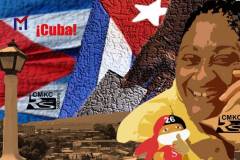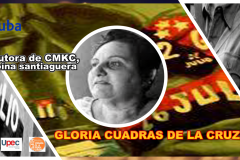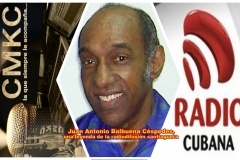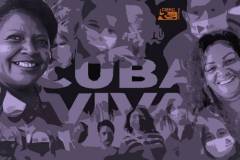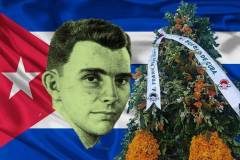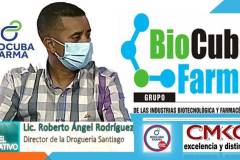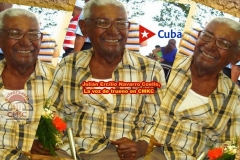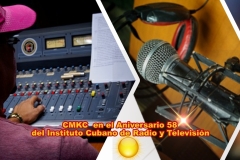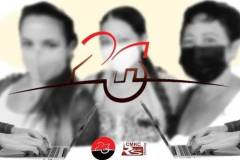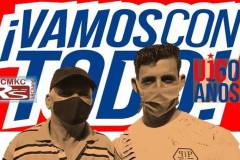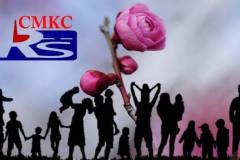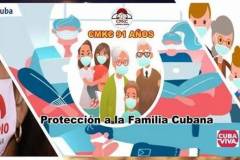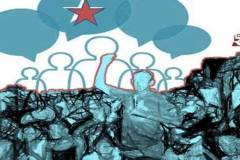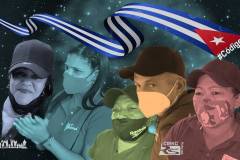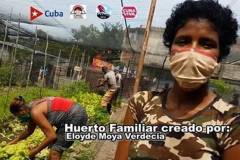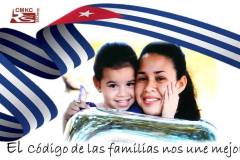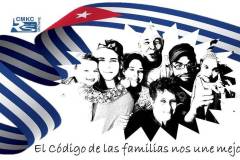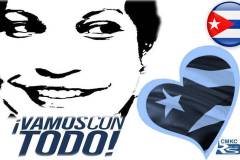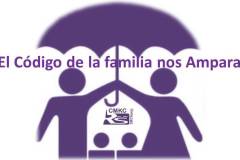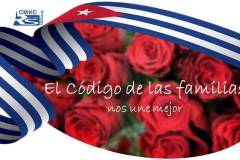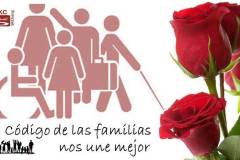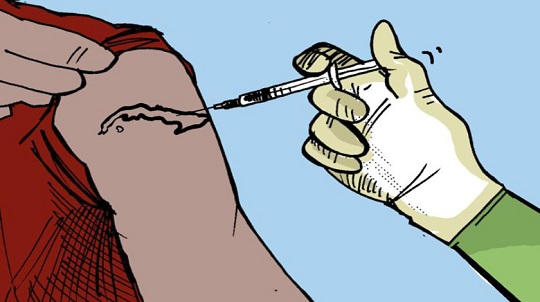

Immunizing- “We are still committed to vaccinating the entire Cuban population before the end of the year, a challenge taken on by the whole health and science system with responsibility and complete dedication,” said Cuban Minister of Public Health, José Ángel Portal Miranda. (ACN)
“The effort and perseverance to protect the Cuban people from the devastating effects of the COVID-19 pandemic through immunization were already evident since the beginning of the various clinical trials conducted by highly prestigious scientific institutions such as the Finlay Vaccine Institute and the Center for Genetic Engineering and Biotechnology (CIGB),” he added.
Portal Miranda also praised the progress of the COVID-19 immunization process in the country, where 82.8% of the people had received at least the first dose until September 28, whereas 46.4 % of the total population has already completed its immunization schedule.
These figures include the convalescents who have received a single dose of Soberana Plus, of which more than 20,788,249 doses have been administered nationwide.
“Not only does Cuba rank first on the list of Latin American countries with the highest percentage of their population vaccinated with at least one dose, it is also the first nation to immunize children with its own vaccines,” he pointed out. “More than 1.6 million Cubans in the 2-to-18 age bracket have started their vaccination schedule in just 20 days.”
He added that the protection of convalescent children is also a priority and recalled that the Center for State Control of Medicines, Equipment and Medical Devices (CECMED) gave its go-ahead to the clinical trial with the Cuban vaccine Soberana Plus, a study that will include 530 children in the provinces of Havana and Cienfuegos.
The minister remarked that Cuba will soon have two vaccines for its pediatric population.
Cuban medical staff: heroes in the fight against COVID-19

The dedication of the island’s medical personnel engaged in the fight against COVID-19 will always deserve our recognition, inasmuch as they have worked nonstop for 18 months, risking their lives to look after every citizen’s health.
In this battle against death across the western province of Artemisa, many young and not so young aid workers changed their daily routines and moved away from their families, making it their duty to provide care to the homebound patients as well as to those who come every day to the Acute Respiratory Infection (ARI) ward, go into confinement, or end up admitted in hospital to be properly treated.
Statement by president of the Republic of Cuba, Miguel Mario Díaz-Canel Bermúdez, at the General Debate of the Seventy-Sixth Regular Session of the United Nations General Assembly
- Time for reinvention
Dr. Dargelo Sánchez Manzano, who works at a polyclinic for positive patients in the town of Mariel, told ACN that the pandemic has forced every medical workers to change the way they go about their responsibilities to tackle the ongoing—and unprecedented—health situation in a nation whose Government allocates all available means to provide a quality medical service.
To that end they spend weeks in the isolation centers to keep an eye on the most vulnerable patients. Many go to other provinces, and some have even died in the line of duty, which reveals how committed they are to the Cuban people.
The greatness of the New Pines
Also marking this joint effort is the devotion shown by the New Pines, namely hundreds of medical students and newly graduates who have been providing specialized care to the people as if they have spent a lifetime in this profession, in addition to their involvement in case-finding and –tracking and their stint in ARI consultations and isolation centers.
Osdanys Gutiérrez, a young doctor whose first year as a professional has passed in the midst of the pandemic, told ACN that this attitude reflects the true value of the training that Cuban healthcare workers receive to provide their services at any time and under any circumstances.
“As students, we never imagined we would soon find ourselves taking life-and-death decisions about our patients or that we would have more practice before. Instead, we have been forced to learn more, and hurriedly to boot, which has worked for the better when it comes to our professional development,” he said.
Daichelys Ramos, who graduated this year in clinical analysis and transfusion medicine, points out that it’s not an easy task, because there is always the fear that you would bring the virus home and infect your family, but her performance during the screenings as a student and as a member of the rapid response group has made her respect her profession even more.
“That difference between a rise or a drop in the number of daily cases is what makes me appreciate the great value of my work and encourages me to go about my duties with more dedication and devotion,” she held.
Today more human and Cuban
Some issues could have been avoided if we had adopted another approach to the situation, but it is fair to say that now every one of these healthcare workers has a different way of seeing life and fighting for it, even at the risk of losing their life to COVID-19, as some have.
Federation of Cuban Women Joins Struggle Against Covid-19
Yakelin Oliva Pluma, a nurse who has worked in local isolation centers and has offered her solidarity to the peoples of Andorra and Martinique, told ACN that it is very difficult to see a patient die, which makes you feel all the more intensely the need to go to even greater lengths to save every patient.
It is because of that boundless dedication that, despite every obstacle along the way, it is safe to say that these are the true heroes of these times, hidden behind a mask to protect their health rather than their identity. Their effort is what makes Cuba today a safer, happier and more immune country.
Cuban medical staff: heroes in the fight against COVID-19
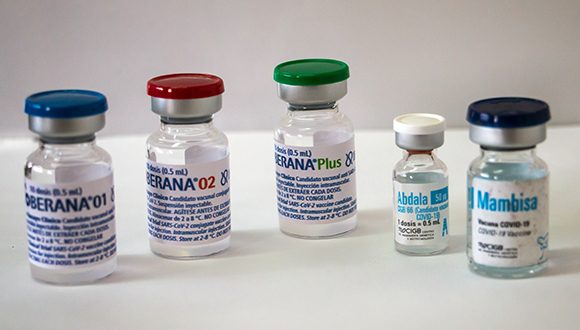
cubanew/acn-ACN Special Service

